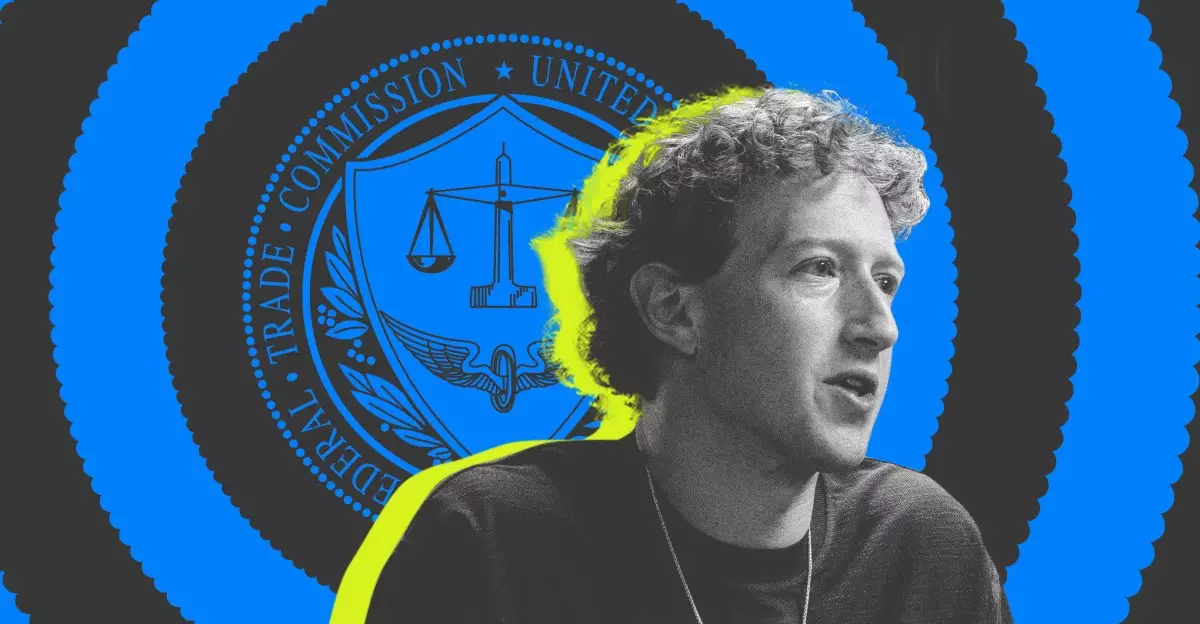The narrative surrounding Meta, the parent company of Facebook, Instagram, and WhatsApp, is a fascinating study in what could have been. If past decisions had taken a different route, we might have seen the emergence of an entirely different social media landscape, or perhaps none at all. Mark Zuckerberg, the architect behind this tech juggernaut, has always been guided by the dual forces of ambition and apprehension. His testimonies during the ongoing antitrust lawsuit filed by the Federal Trade Commission (FTC) reveal not only his thought process but also the precarious nature of decision-making in the realm of tech.
Zuckerberg’s reflections underscore the essence of Silicon Valley where strategic acquisitions are often viewed as not merely business operations but existential maneuvers. Consider the hypothetical scenario where Snapchat, an app that soared in popularity and became synonymous with ephemeral messaging, could have been under Meta’s wing had CEO Evan Spiegel accepted Zuckerberg’s offer in 2013. A $6 billion bid was on the table, yet it was ultimately a lost opportunity. Analysts have often speculated that had this acquisition taken place, Snapchat could have been turbocharged by Meta’s resources, fundamentally altering its trajectory.
The Trial as a Window into Corporate Philosophy
Across nine hours of testimony, Zuckerberg offered a peek behind the curtain, revealing his company’s philosophies and defensive tactics against regulatory pressures. The FTC asserts that Meta engaged in predatory practices by acquiring emerging threats such as Instagram and WhatsApp. They argue that this strategy was essential in fortifying Meta’s monopoly over personal social networking services. Zuckerberg’s resistance to this characterization highlights an underlying tension in how we define competition in the social media arena.
The current dispute illustrates a broader lesson: the ambiguity surrounding market definitions in tech is not only complicated but deeply subjective. For Zuckerberg, competition isn’t confined to what one agency decrees as direct rivals. He points to TikTok and YouTube as primary competitors, while simultaneously acknowledging the multifaceted nature of social networking. This depiction of the market as fluid mirrors the shifting sands of user preferences and technological advancements.
Strategic Misstep or Ingenious Maneuver?
Zuckerberg’s consideration of extreme restructures—such as wiping out friends lists to rekindle user excitement—demonstrates a level of introspection that is often overlooked amid the discussions of compliance and control. This notion evokes a certain naïveté; tearing apart connections to enhance user experience might sound innovative but is also draped in recklessness. The question arises whether it’s a stroke of genius or a desperate cry for relevance in an exponentially crowded marketplace.
Interestingly, the FTC suggested that Zuckerberg’s fear of losing users and his overreliance on acquiring new platforms to stave off stagnation exemplified a reactive rather than a proactive business strategy. Zuckerberg countered that his acquisitions allowed fledgling platforms to flourish under the Meta banner. Whether these acquisitions were truly an altruistic endeavor to enhance competitive offerings or a strategic ploy to eliminate competition remains contentious.
Ethical Dilemmas in Advertising and Consumer Control
Another layer to this intricate narrative is the ethical dimensions intertwined with advertising. Zuckerberg’s admission that Meta toyed with the idea of an ad-only feed raises significant concerns about user autonomy and the very structure of social media monetization. If users begin to accept advertisements as content, what are the implications for future consumer interaction?
The FTC’s case against Meta is not just about keeping competitors at bay; it delves deep into fundamental questions concerning market fairness and user welfare. As society increasingly grapples with the digital economy’s consequences, the notion that Meta could generate more revenue through an ad-centric approach may reflect a disconnection between corporate strategies and consumer needs. It amplifies the conversation about the power dynamics at play in a world where people’s online interactions are carefully curated and monetized.
Reflecting on a Digital Monolith’s Future
The myriad decisions that Zuckerberg and his executive team have made over the years cast long shadows over Meta’s operations today. Issues of monopoly power, ethics in advertising, and user empowerment are just a few points of contention that the company’s trajectory continues to navigate. As antitrust discussions progress, the imminent question becomes: can a company built on the tenets of connection thrive in an environment that is increasingly demanding transparency and accountability?
What remains clear is that tech companies like Meta find themselves at a pivotal crossroads. The decisions made today will not only shape the future of their organizations but could redefine how society interacts in an ever-evolving digital tapestry. The complexity of stakeholder interests—from shareholders to consumers—suggests that the battle for Meta’s reputation and operational landscape is far from over, igniting a crucial dialogue about what the future may hold.

